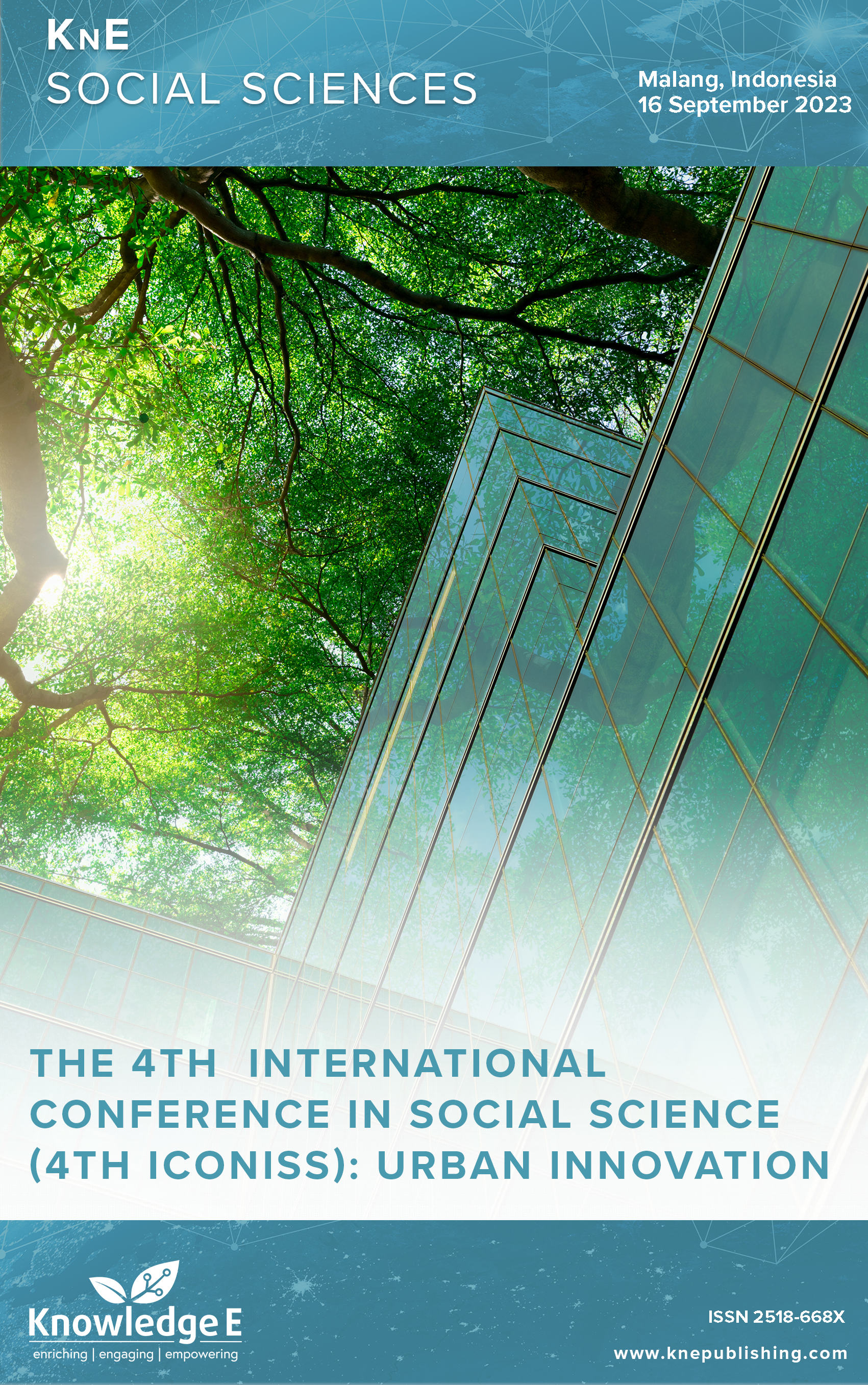Improving Business Performance of SMEs Using SDGs Components and Business Strategy
DOI:
https://doi.org/10.18502/kss.v9i26.17066Abstract
This study aims to describe and analyze the correlation of the SDGs components related to business strategy and performance of SMEs. Sustainable Development Goals (SDGs) were conceptually used as basic variables in improving the business performance of small and medium enterprises (SMEs) in order to reduce poverty alleviation. The type of this research is explanatory research. The number of samples in this study were 170 respondents of SMEs determined by structural equation model (SEM) as the method of analyzing data, which is operated by AMOS. The population is 295 SMEs. The result of this study shows that the greatest influence of performance of SMEs was business operational strategy of 6,365, and the smallest effect was on SDGs economic indicators to business operational strategy of 1,022. In this case, it can be stated that the sustainable development goals (SDGs) have a significant influence on the business operational strategy and business performance of SMEs. For small and medium entrepreneurs in Yogyakarta, seeing SDGs as a development goal will affect their operational business strategy, especially related to economic variables.
Keywords: business performance, business strategy, poverty alleviation, small and medium enterprise (SMEs), SDGs
References
Stonebaker P, Leong G. Operation strategy: focusing competitive excellence. Boston (MA): Allyn and Bacon; 1994.
Ellitan L. The effect of manufacturing strategy on firm’s performance an initial study from East Java. EMPIRIKA; 2001.
Krawjesky LJ, Ritzman LP. Operation management strategy and analysis. 6th ed. Prentice Hall International, Inc; 2012.
Sanusi A. Metodologi penelitian bisnis. 6th ed. Jakarta: Salemba Empat; 2016.
Gerwin D. Manufacturing flexibility: a strategy perspective. Manage Sci. 1993;39(4):395–410.
Ward PT, Duray R. Manufacturing strategy in context: environment, competitive strategy, and manufacturing strategy. J Oper Manage. 2000;18(2):123–38.
Swamidas PM, Newell WT. Manufacturing strategy, environment uncertainty and performance: a path analytic model. Manage Sci. 1987;33(4):504–29.
NIST. 2021–2022 Baldrige performance excellence framework. 2021. p. 1–20. www.Nist.Gov/Baldrige/Publications
Bashir A, Amir A, Jawaad M, Hasan T. Work conditions and job performance: an indirect conditional effect of motivation. Cogent Business and Management. 2020;7(1).
Kot S. Sustainable supply chain management in small and medium enterprises. Sustainability (Switzerland). 2018;10(4). https://doi.org/10.3390/su10041143
Morissan. Metode penelitian survei. Edisi pertama. Jakarta: Penerbit Kencana Prenada Media Group; 2012.
Chandrarin G. Metode riset akuntansi pendekatan kuantitatif. Jakarta: Salemba Empat; 2017.

